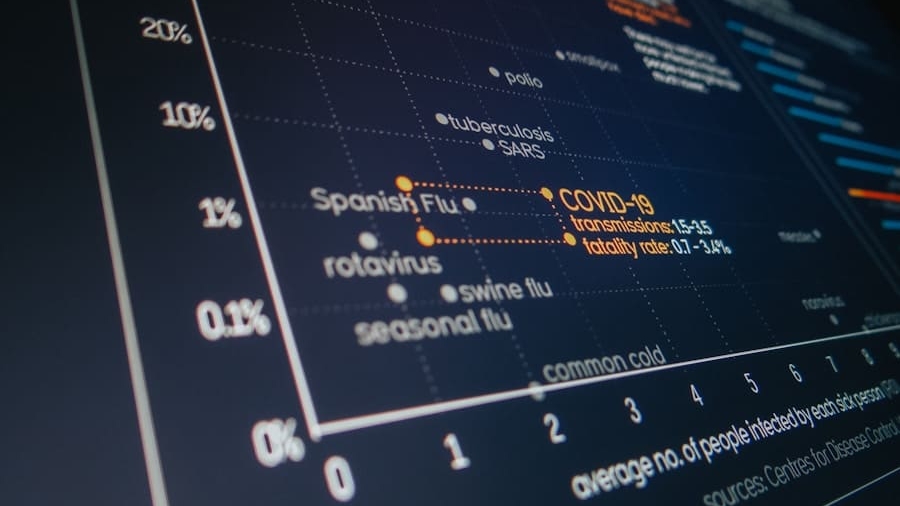Search Engine Optimization (SEO) is a multifaceted discipline that aims to enhance a website’s visibility on search engines like Google, Bing, and Yahoo. At its core, SEO involves optimizing various elements of a website to ensure that it ranks higher in search engine results pages (SERPs). This process encompasses both on-page and off-page strategies.
On-page SEO refers to the optimization of content, HTML tags, and images within the website itself, while off-page SEO involves external factors such as backlinks and social media presence. The ultimate goal is to attract organic traffic, which is crucial for increasing brand awareness and driving conversions. Understanding the fundamentals of SEO requires familiarity with how search engines operate.
Search engines use complex algorithms to crawl, index, and rank web pages based on their relevance and authority. Factors such as keyword usage, site speed, mobile-friendliness, and user experience play significant roles in determining a website’s ranking. Additionally, search engines are increasingly prioritizing high-quality content that provides value to users.
This shift emphasizes the importance of creating informative, engaging, and well-structured content that meets the needs of the target audience. As a result, businesses must adopt a holistic approach to SEO that integrates technical optimization with content strategy.
Key Takeaways
- SEO is essential for improving website visibility and driving organic traffic
- AI tools can help analyze website performance and provide valuable insights for SEO optimization
- It’s important to choose the right AI tool that aligns with your website’s specific needs and goals
- AI can assist in analyzing keywords, optimizing content, and improving overall website relevance
- Backlink analysis with AI can help identify quality backlinks and improve website authority
Implementing AI Tools for SEO Analysis
The advent of artificial intelligence (AI) has revolutionized the way SEO analysis is conducted. AI tools can process vast amounts of data at unprecedented speeds, allowing marketers to gain insights that were previously unattainable. These tools can analyze user behavior, search trends, and competitor strategies, providing a comprehensive overview of the SEO landscape.
By leveraging AI, businesses can identify opportunities for improvement and make informed decisions that enhance their online presence. One of the key advantages of using AI for SEO analysis is its ability to predict trends and user intent. Machine learning algorithms can analyze historical data to forecast future search behaviors, enabling marketers to stay ahead of the curve.
For instance, AI tools can identify emerging keywords or topics that are gaining traction in specific industries. This predictive capability allows businesses to tailor their content strategies accordingly, ensuring they remain relevant in an ever-evolving digital landscape.
Choosing the Right AI Tool for Your Website

Selecting the appropriate AI tool for SEO analysis is crucial for maximizing its benefits. The market is flooded with various options, each offering unique features and capabilities. When evaluating AI tools, businesses should consider factors such as ease of use, integration capabilities, and the specific needs of their website.
Some tools are designed for comprehensive SEO audits, while others focus on niche areas like keyword research or backlink analysis. For example, tools like SEMrush and Ahrefs provide extensive features that cover multiple aspects of SEO, including keyword tracking, site audits, and competitor analysis. These platforms are particularly beneficial for businesses looking for an all-in-one solution.
On the other hand, specialized tools like Clearscope or MarketMuse focus on content optimization by analyzing top-performing articles and suggesting improvements based on semantic relevance. By understanding the unique strengths of each tool, businesses can make informed decisions that align with their specific goals and objectives.
Analyzing Keywords and Content with AI
Keyword analysis is a cornerstone of effective SEO strategy, and AI has transformed how this process is conducted. Traditional keyword research often involved manual searches and guesswork; however, AI tools can now analyze vast datasets to identify high-potential keywords based on search volume, competition level, and user intent. This data-driven approach allows marketers to uncover long-tail keywords that may have been overlooked in conventional analyses.
Moreover, AI can enhance content creation by providing insights into what topics resonate with target audiences. For instance, tools like Surfer SEO utilize AI algorithms to analyze top-ranking pages for specific keywords and generate content briefs that outline essential topics to cover. This ensures that content creators are equipped with the information needed to produce high-quality articles that meet user expectations.
Additionally, AI can assist in optimizing existing content by suggesting improvements based on current trends and performance metrics. By continuously refining content through AI insights, businesses can maintain relevance and authority in their respective niches.
Utilizing AI for Backlink Analysis
Backlinks remain a critical factor in determining a website’s authority and ranking potential. However, analyzing backlinks manually can be a daunting task due to the sheer volume of data involved. AI tools streamline this process by automating backlink analysis and providing actionable insights.
These tools can evaluate the quality of backlinks based on various metrics such as domain authority, relevance, and anchor text diversity. For example, platforms like Moz and Majestic offer advanced backlink analysis features that allow users to assess their backlink profiles comprehensively. By identifying high-quality backlinks and potential toxic links that could harm their rankings, businesses can develop targeted strategies for link building and disavowal.
Furthermore, AI can help identify backlink opportunities by analyzing competitors’ profiles and revealing where they have gained links from authoritative sources. This competitive intelligence enables businesses to craft outreach strategies that capitalize on these opportunities while enhancing their overall link-building efforts.
Monitoring Website Performance with AI

Continuous monitoring of website performance is essential for maintaining an effective SEO strategy. AI tools provide real-time analytics that allow businesses to track key performance indicators (KPIs) such as organic traffic, bounce rates, and conversion rates. By leveraging these insights, marketers can quickly identify areas that require attention or optimization.
For instance, Google Analytics employs machine learning algorithms to provide predictive insights about user behavior on websites.
Additionally, AI-driven tools can alert marketers to significant fluctuations in traffic or rankings, allowing them to respond promptly to potential issues.
By maintaining a proactive approach to performance monitoring through AI insights, businesses can ensure their SEO efforts remain effective and aligned with their goals.
Leveraging AI for Competitor Analysis
Understanding the competitive landscape is vital for any successful SEO strategy. AI tools facilitate in-depth competitor analysis by providing insights into competitors’ strengths and weaknesses in terms of SEO performance. These tools can analyze competitors’ keyword rankings, backlink profiles, and content strategies to identify gaps that businesses can exploit.
For example, tools like SpyFu allow users to see which keywords competitors are bidding on in paid search campaigns as well as their organic rankings. This information can inform businesses about potential keywords they may want to target or avoid based on competition levels. Additionally, AI can help identify content gaps by analyzing what topics competitors are covering extensively versus those they are neglecting.
By leveraging these insights, businesses can create unique content that addresses unmet needs in the market while positioning themselves as thought leaders in their industry.
Making Data-Driven Decisions with AI Insights
The ultimate goal of integrating AI into SEO strategies is to make data-driven decisions that enhance overall performance. By harnessing the power of AI analytics, businesses can move beyond intuition-based strategies and rely on concrete data to guide their actions. This shift towards data-driven decision-making allows marketers to allocate resources more effectively and prioritize initiatives that yield the highest return on investment.
For instance, if an AI tool reveals that certain keywords are driving significant traffic but have low conversion rates, marketers can investigate further to understand why this discrepancy exists. They may discover that while the traffic is high, the landing page experience is subpar or misaligned with user intent. Armed with this knowledge, they can make targeted improvements that enhance user experience and ultimately drive conversions.
By continuously iterating on strategies based on AI insights, businesses can foster a culture of optimization that leads to sustained growth in their online presence. In conclusion, the integration of AI into SEO practices offers unprecedented opportunities for businesses seeking to enhance their online visibility and performance. From keyword analysis to competitor insights and performance monitoring, AI tools provide valuable data-driven insights that empower marketers to make informed decisions.
As the digital landscape continues to evolve, embracing these technologies will be essential for staying competitive and achieving long-term success in SEO endeavors.
If you’re interested in harnessing the power of technology to improve your website’s performance, you may also want to check out this article on the top 10 best astrology software for PC and Mac in 2023. Enicomp.com offers a variety of resources and recommendations for optimizing your digital presence, including tips on SEO analysis and tools. Additionally, they provide insights on the best tablets for students in 2023, which can be helpful for those looking to enhance their productivity and efficiency in their academic pursuits.
FAQs
What is AI?
AI stands for artificial intelligence, which refers to the simulation of human intelligence in machines that are programmed to think and learn like humans.
What is SEO?
SEO stands for search engine optimization, which is the practice of increasing the quantity and quality of traffic to your website through organic search engine results.
How can AI be used to analyze website SEO performance?
AI can be used to analyze website SEO performance by using machine learning algorithms to process and interpret large amounts of data, identify patterns, and make predictions about how to improve a website’s search engine ranking.
What are the benefits of using AI for SEO analysis?
Using AI for SEO analysis can provide more accurate and comprehensive insights into a website’s performance, identify new opportunities for optimization, and automate repetitive tasks to save time and resources.
What are some AI tools for analyzing website SEO performance?
There are several AI tools available for analyzing website SEO performance, including Google’s RankBrain, MarketMuse, and BrightEdge. These tools use AI algorithms to analyze website data and provide actionable insights for improving SEO.
How can AI help with keyword research for SEO?
AI can help with keyword research for SEO by analyzing search trends, user behavior, and competitor data to identify relevant keywords with high search volume and low competition. This can help website owners target the most effective keywords for their content.

